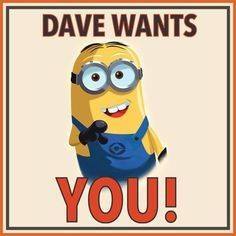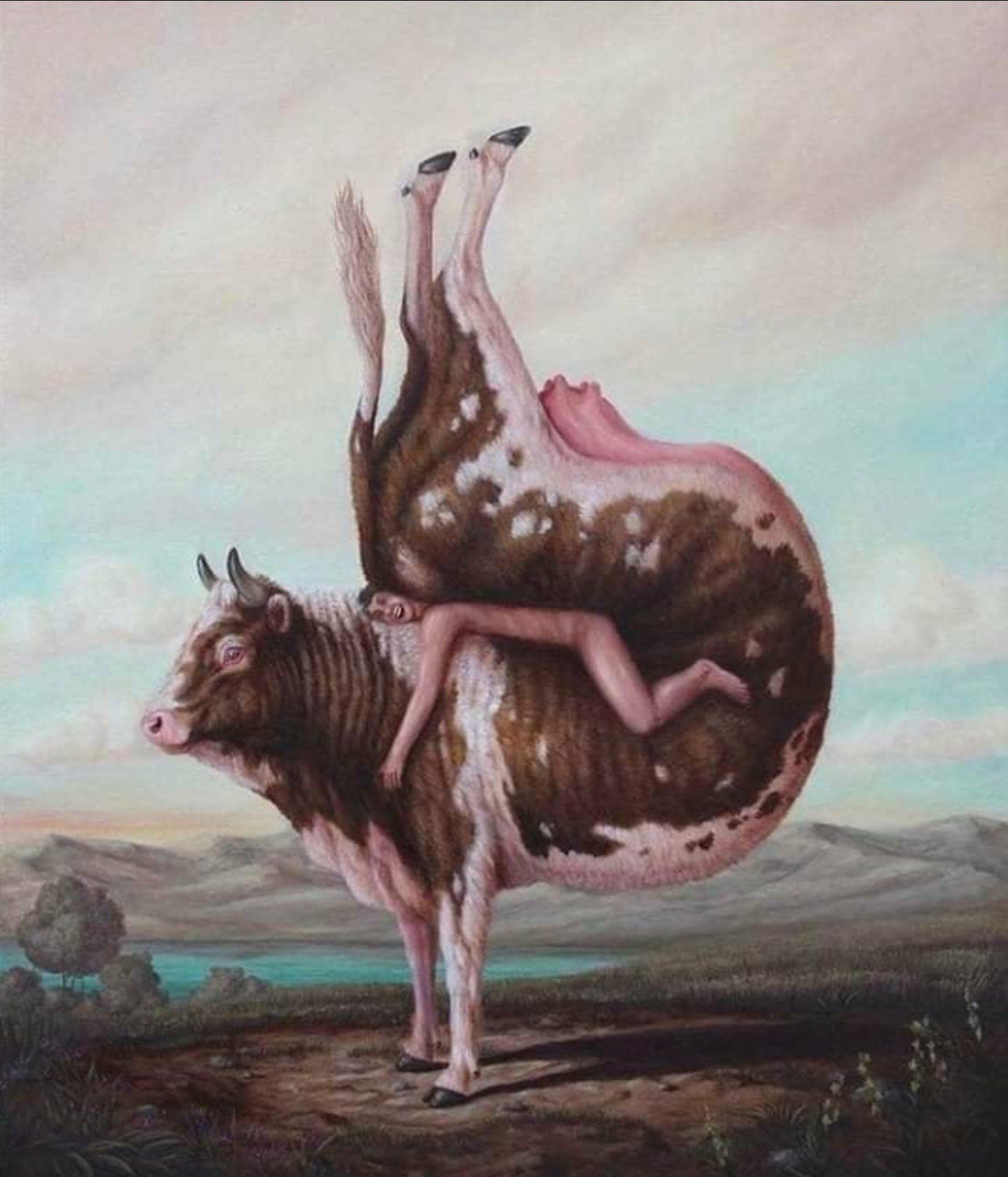When you read up on U.S. political basics, you can’t help but come across the detail that many of the people in cities in the U.S. seem to lean left, yet what isn’t as clear is why and what influences their concentration in cities/urban areas.
Cities don’t exactly appear to be affordable, and left-leaning folks in the U.S. don’t seem to necessarily be much wealthier than right-leaning folks, so what’s contributed to this situation?
It’s more that cities tend to make people liberal. Some folks in small towns have never met a Muslim person or a Korean person. They have only a family tradition of racism in their small white racist town. People in cities have to live alongside many different types of people, and get to eat different foods and have different experiences. That cures racism.
Yep. There’s nothing like face-to-face interactions to dispell myths, bias, and assumptions.
Oh, like the myth that cities are a utopia where there is no racism? Because guess what, bud, there are plenty of fucking racist pieces of shit in the city. Or how about the myth that only white people are racist? Because there is racism between Asians and Black people. Or Black people and Hispanics. Or between the various religions. It ain’t just white people.
Yes, there tend to be more liberal viewpoints in large cities, but this broad-stroke painting a picture of a lack of racism in cities needs to stop. People need to re-learn nuance.
Maybe ask them if they’re generalizing before a tirade? Yes, hate and stupidity exists everywhere, but I’ve lived in rural and metro areas and their generalization is accurate. And for that matter, there’s a lot of warm people that live in back country who aren’t stupid or racist, but, depending on a few factors, you can easily run into rural stereotypes. All the same I imagine a lot of us are talking in general views.
What tirade? And it’s amazing how I’m downvoted for pointing this shit out. It’s that same old ploy when someone doesn’t like hearing the truth so they just keep saying, “stop yelling at me”, no matter how calmly you try to say it. It’s almost like there’s a narrative trying to be controlled and yinz don’t like it when you’re called out.
And since you missed it in my last comment: GENERALIZATION IS WHAT’S HARMFUL. LEARN NUANCE.
Haha, the irony of a person screaming, “learn nuance.” Generalization isn’t the problem, income inequality is. You clearly have a lot of energy and passion which is great, but you need to learn how to punch up.
Brother, I do punch up, because punching down is for suckers and only serves to injure one’s own hand. And when it comes to people continuing to push generalizations, because generalizations only serve agendas, I’ll punch them too.
Punch yourself, then. You just “generalized” the gender of a random lemmy commenter. Again, hilariously ironic.
Not every conversation and discussion can contain every edge case. Generalizations are okay some times
Make a generalization and people attack your argument with exceptions and lack of specificity.
Make an argument with specificity and it has to be written with exceptions, caveats, disclaimers, becomes long-winded and nobody wants to read it. Or they throw a generalization at you.
Can’t win, but conciseness and a level of brevity are still good policy.
deleted by creator
I bet you’ve figured out that low fat food isn’t fat free too. Bud.
deleted by creator
It’s also why college can make someone more liberal
Well that is my childhood and then I moved to a big city.
Being liberal is more than just an issue of race and culture though. It’s a whole philosophy. And there are things in every established philosophy I can’t see myself getting behind.
It’s a whole philosophy
… I kinda feel I might regret this, but what do you mean? Are you sure you’re not too deeply invested in your own biases about what “a liberal” is?
There are a lot of people that identify as liberals, and a lot of people that identify as conservatives. They’re still all very different people. It’s a better grouping than say, someone’s preference of coke vs pepsi, but it’s not all encompassing.
The comment I was replying to was implying two things, one, that exposure to cultural diversity magically changes someone, and two, that rural areas lack that diversity (one could argue a third implication, that cultural diversity is the only diversity).
Both of these are wrong. If you live close to people of all backgrounds, sure, you’re going to be less likely to double down on people who are culturally different than you, and I welcome this. But exposure to people all around the world isn’t going to equate to, say, making you believe in raising the minimum wage or that reparations would be great as an idea. I’m not saying there aren’t things that would make someone conclude such things, but there’s nothing in “exposure” alone that will do that.
In their traditional senses of the words, “conservative” and “liberal” are political philosophies, two of several political philosophies, which include the likes of such things as “libertarianism”, “marxism”, “communitarianism”, “futurism”, “fascism”, “socialism”, and sometimes “stoicism”. Imagine asking a presidential candidate a single question like “do you support civilian gun ownership”, and if they give an answer you agree with, thinking “the candidate gave a liberal answer, and I’m a liberal, so I must vote for them”. That’s not how it works. These are fleshed out things. If I didn’t know better, I’d wonder if the original commenter just hated rural people (and yet I’m downvoted into oblivion for mentioning “liberal” means something more fleshed out and I end up being asked if I’m the biased one, like you’re better than this, Lemmy). I’m a rural societal member (side note, rural society has its own types of diversities that are not common in urban areas, such as more tolerance to the handicapped) and I seem to get along great with the liberal cause even though I’m not a liberal (I don’t know what I would be considered).
But exposure to people all around the world isn’t going to equate to, say, making you believe in raising the minimum wage or that reparations would be great as an idea.
Raising the minimum wage I’d say is a “liberal” talking point, but I think reparations crosses the line into “leftist” territory (this is a common problem – at the danger of not having read the article, https://www.washingtonpost.com/outlook/2019/09/12/stop-calling-bernie-sanders-alexandria-ocasio-cortez-liberals/).
This ties back into my whole:
Are you sure you’re not too deeply invested in your own biases about what “a liberal” is?
The OP’s post the comment was responding to references “left-leaning” which is a spectrum, not “liberal.”EDIT: I don’t like how this reads. What I’m trying to convey is that liberal means a lot of things to different people, and it’s got multiple definitions floating around. You may have attached ideas to that word the commenter didn’t mean, and may have misplaced feelings about what it means to “be a liberal” or to “become more liberal.”
that exposure to cultural diversity magically changes someone
I don’t think they’re claiming that at all. They’re just saying … to put it in non-political terms, if you’ve never read a mystery book before, and suddenly you’re forced to, you might change your thoughts on what a mystery book is really like.
I’ll give you, I think the comment is a bit too “racism” focused. The idea that exposure to new experiences might change your prior feelings is I think pretty reasonable. e.g., you have a bad experience with one mystery book, now reading some others might now change your feelings. It doesn’t need to be a matter of hostility, but there is an effect that quantity can have on perception… and that’s what I think “exposure” can do for a person’s perspectives.
that exposure to cultural diversity magically changes someone … that rural areas lack that diversity
This may not be true for you, but I grew up in a poor county in rural Ohio and found myself in a public high school with (per my recollection) roughly 800 white kids, 3 black kids, and no other racial identities. Things have changed there some in the years since, but AFAIK not by much.
To “out myself” and openly discuss one of those “taboo” talking points folks reference vaguely; for me, moving to the city definitely challenged some inward racism I had. It wasn’t coming from a bad place, but I just didn’t have much experience with encountering (to set the scene, at night on okay-ishly lit city streets near a bad part of town where I knew people were being mugged) big black dudes (that could’ve snapped my – at the time – very scronny self in half) in baggy dark hoodies and big baggy sweats. They sure looked like what I imagined a robber to look like, they sure looked like what I saw in movies, and they were really different from the carhartt, blue jeans, and baseball hat wearing dudes I was used to; but, the more of them that I walked past without incident, the more I realized I had a warped perception of who’s a threat.
It wasn’t just “casual racism” though, it was also things like one of my early college friends. He was as white as can be, but he wore some seriously intense gothic clothing. When he first engaged me in class, I wasn’t sure what to think, his clothes to my mind threw up red flags… SUPER friendly guy, I’m sad to say I’ve lost touch with him, but he was a genuinely great guy.
that cultural diversity is the only diversity
I agree; I can say my background doing stuff like building a vortex simulator from literal junk yard trash at my rural high school while modding Minecraft in my spare time is a pretty unique background that few others I’ve met have been able to match.
I’d wonder if the original commenter just hated rural people
And maybe; more likely, they’re just angry with them and lashing out a bit. I’m angry with how my “home town” has chosen to carry itself myself; I’ve seen lots of Democratic politicians trying to do things to genuinely try to help people, and then Republican pulling what can only be described as fraught stunts to stir up anger and piss off people in the cities or disenfranchise them. It’s a hard thing our country really needs to reconcile, way too many people are “vaguely mad that-a-way.”
and I seem to get along great with the liberal cause even though I’m not a liberal
You’re an American, we all are, and that’s what’s important. Don’t get caught up on the label on anything.
Aspects of liberal political philosophy:
- The belief that human ingenuity is better than tradition at solving problems
- The belief that heavy government interference is more likely to help than to cause trouble
- Belief that everyone deserves to be taken care of, and that it is everyone’s responsibility to do this
- Belief that violence begets violence and that the most stable and predictable path to peace is disarmament
- Belief that progress is best accomplished through consensus-based central planning
- Belief that the primary cause of human suffering is lack of resources
- Belief that evil is a disease state that can be eradicated through provision of adequate care and attention
Wikipedia says:
Liberalism is a political and moral philosophy based on the rights of the individual, liberty, consent of the governed, political equality, right to private property and equality before the law. Liberals espouse various views depending on their understanding of these principles but generally support private property, market economies, individual rights (including civil rights and human rights), liberal democracy, secularism, rule of law, economic and political freedom, freedom of speech, freedom of the press, freedom of assembly, and freedom of religion, constitutional government and privacy rights.
Where did you come up with your list?
To be fair, the word “liberal” has two meanings. In the US and Canada, the word commonly means “vaguely leftish”, as when people say “the liberal media” or “college makes you liberal”. I think the person you’re responding to is using it this way. This usage is slowly phasing out I think.
The definition you cited is another totally correct usage of the term. It is close to the idea of libertarianism, and is associated with conservative economic policies. So it has the opposite meaning.
I came up with my list by talking to liberals and living in the United States for forty years.
Left leaning people tend to be better educated. The majority of the jobs for better educated people are in cities. Cities are more expensive because jobs for better educated people tend to pay more.
This is my take too. Reality has a liberal bias, and people doing skilled/educated work tend to have a firmer grasp on reality
Really like this answer. Agree. Reality has a liberal bias. Religion and wishing for a return to rose colored past times is foundation of conservatives I know.
So you think someone who designs cars has a better grasp on reality than a person who fixes cars?
What?
What do you mean what?
This is the correct answer from my observation and personal experience. Get educated and move to your dream job which is probably in a city. Leave behind the religious and conservative echo chamber.
So if we set aside those that simply lived there already & so that affected their leaning, then the other part may be the employment opportunities?
Which then may shift the question to matters concerning the employers’ location decisions, so that’s another route to research, I suppose.
Employers go where they can find a well-educated workforce that will sustain them. And round and round we go.
Economic location geography is a lot more complicated than that (not every business is labour-intensive, cluster economics, IO logistics et cetera). Political geography of population also isn’t equal or similar to economical geography, given that social factors like class or race and discourses around sometimes heavily distort those maps we imagine.
I’m not sure that it’s simply that a city attracts left leaning people.
I grew up conservative, religious, and from the country, and had to move to the city because that’s where my mom took us. My move to the left ocurred due to what the city offered: cultures. I was exposed to many other ways of thinking, to art, to music, to trends, to drugs. I came to see other types of people as just people like me, with different points of view but each deserving their own chance at the American dream. I also became atheist.
The city might attract the left, but it also creates the left.
Incidentally, I want to move to a more secluded part of the state, probably where you’d see the F**k Biden billboards. We can’t all be pigeon holed so easily.
Incidentally, I want to move to a more secluded part of the state, probably where you’d see the F**k Biden billboards. We can’t all be pigeon holed so easily.
I’m trying to move to the sticks right now, and a high likelihood of having trumpers for neighbors is honestly one of the things that’s bothering me the most.
I concur, cities are cosmopolitan in their nature. Being confronted to diversity brings socialist ideas more easily than living in a secluded countryside, where everyone is the same.
Though it can bring rejection and discrimination as easily.
Not even “Socialist ideas”.
Just simply a better understanding that people are people, no matter what they look like.
Exactly where I was going to go with it. This question comes with a lot of assumptions about causation rather than just examining the correlation of political views and population density.
It’s as weird as asking the question as “why are conservatives moving to the middle of nowhere?”
Tbh I was considering flipping the question and asking, “Why aren’t leftists moving to rural areas?” but that seemed a similarly mucked up form of the question.
The question wasn’t aiming to be academic, so wasn’t carefully formed to account for causation and examining demographic details, but regardless, it could be better. I’m simply not sure how I might better ask the sort of question I’d like to ask to get the kind of info & responses that would satisfy my curiosity concerning this area.
Despite the malformed query, some of the responses here have given some useful insights, direct or indirect as they may be.
Edit:
Also, despite several of the anecdotes about moving to the city and city life influencing them to more left-leaning views, part of what influenced this question is experience in rural areas and developing as a leftist there among other left-leaning folks.I think if you had asked " “Why aren’t leftists moving to rural areas?” " you’d get a lot of “because rural areas suck” answers. Because holy shit unless you’re there specifically for nature and isolation they’re inferior on every metric.
I’ve lived in both rural and urban areas. Rural areas do indeed suck. People there lead boring purposeless lives so they’re always up in your business. If you keep to yourself they’ll just make shit up. This is not a problem in the city.
You have it backwards. Living in cities (and especially growing up there) move you to the left. You see people suffering and you know it’s not entirely their fault. You get to know other cultures, eat at their restaurants, hear their music etc.
Maybe, but I’m asking what draws those that may be more left-leaning to them apart from those already there, given aforementioned cost of living issues.
Again, you have this backwards. I’m suggesting that exposure to people and their cultures “moves you to the left”. Being “drawn to the right” is easier in isolation from other cultures.
If you live in a place and most of what you know comes from talk radio and Joe Rogan you will have a very different view of the world than if you live in a major city.
I understand what you (and others responding similarly) are suggesting, but that doesn’t address the question I’m asking, which is inspired in part by the fact that there are folks on the left that don’t come from the cities, but may eventually find themselves there.
The responses that have addressed that question have related the variety of stuff as a draw, economic opportunities (albeit that runs into unaddressed problems concerning how one affords the move & living), cultural variety, and the like. Those address the question better than the supposition that I have this backwards, and that cities serve as the primary producers of leftism.
That being said, I’m not dismissing those expressing that view, as I don’t think it’s entirely wrong, only that they appear (in some instances) to be overlooking rural leftists in favor of their view that cities just are or produce leftists and rural areas just are or produce only right-leaning folks/conservatives. Those may be the prevailing trends, but trends are not the whole picture.
💀
deleted by creator
This is a huge factor. Rural people pay all of their taxes but from their perspective, they are getting nothing back. There is no point in building a huge new Hospital 50 miles from any settlement, nobody can use it and it will be a complete waste. Why would they ever vote for politicians that plan on spending taxes to fund services, when another group is saying they will cut taxes?
Very good point
I’m no anthropomologist by any means so take what I say with a grain of salt, but I’d figure its the other way around. People raised in contact with more diverse groups of people (eg. raised in a city) are probably more likely to become left-leaning, where people raised in a more homogenous environment (eg. small towns) are more likely to become more right-leaning
Yes, it’s both - both the effect of seeing diverse people on those who first live there, and the self-sorting that people who are interested in diverse experiences and cultures are either drawn to / not afraid of the city.
You’re confusing cause and effect, mostly.
If you’ve:
-
Met a bunch of people that don’t look like you or live like you
-
Have a high paying job that requires a good education
-
Encountered a ton of new concepts and ideas frequently
You’re more likely to be a liberal. These things also tend to occur at much greater frequencies in cities.
-
All cities also tend to have tremendous cultural output. There’s music and art here. Conservatives aren’t known for embracing new culture…
You’re more likely to find your people if you’re looking for something outside of the utter mainstream here. The suburbs aren’t known having strong queer scenes, a wide and deep variety of faiths, and so on. Conservatives also tend to drop the ball on this.
That and conservative art just isn’t that good or ground breaking.
It’s where all the stuff is. We like stuff, varieties of stuff of all kinds. including types of people. Conservatives hate stuff, and are generally anti-variety, so they stay where the stuff isn’t. they want to feel safe from the stuff, and they never feel safe unless there is a substantial buffer zone between them and stuff and a stockpile of guns to protect themselves from stuff, or books about stuff.
This is some good stuff.
Agreed with others that city living causes liberalism.
There’s a flip side too - rural areas experience many kinds of change more slowly and that can lead to conservatism. While we all enjoy new things, I feel like it’s easier to notice what is being lost - when things change - in a small rural community.
Maybe it’s just that we become used to putting up with older things and older social norms, so we feel the downsides less and so become less eager to replace them with what is next.
A less generous way of saying this is that in a small town it’s easier to not feel how much harm is being done by “the way we’ve always done it”.
You said it yourself: Cities lean left, but a significant minority of urbanites are still conservative. There are more conservative in the city than in the country, in fact, it’s just that in rural areas we’re in the majority.
Another factor: People who are wary of change are less likely to move away from where they grew up.
Speaking as someone that made this transition…
I think liberals in general tend to be more optimistic and open to change and doing things new ways. Small towns tend to harbor pessimism, yearning for days gone, and a more strict adherence to “if it ain’t broke, don’t fix it.” I remember countless times I was frustrated with folks doing things one way, “because it’s always been done that way.” An example from my childhood is the lunch room at the school, there were two doors but students were only allowed to use one, which always became a choke point. When I asked why they don’t just change that policy, they said “because that’s how we’ve always done it [and it works well enough].”
As for why this mentality prevails, I think it’s because there are few stabilizing forces in a small town, often just a handful of business control the economy; I think that naturally ties people to being fearful of change that might harm the stability of said businesses, and many small towns have been burned. If you lose your job in the city, there’s a pretty good chance you can just get another one with reasonably comparable pay. If you lose your job in a small town, you might have to get a whole new town and leave long time friends (or enter a period of emotionally draining economic hardship – my family chose the later in the 09 financial crisis, neither option is great).
Cities also tend to offer more choices, amenities, better health care, better emergency services (read faster, much much faster), lower utility bills, and in the right neighborhood (with a bit of work) an equally (if not more) cozy relationship with neighbors… the mindset is why you leave, these things are why you stay.
Cities have a bad wrap with some because of… a variety of forces in the last decade, but IMO that’s reversing and “living in the inner city” isn’t a bad thing anymore; the blip in human history where cities became unpopular and undesirable is reversing.
Anyways, that’s my two cents.
I hate the “if it works, don’t fix it” mentality. I have to fight it all the time at work. Personally, I think it comes from an inability or lack of motivation to consider how something could be better, or a lack of curiosity
Good jobs are in cities. Usually good jobs require a college education. Educated people are more left-leaning.
Hol’ up, Anticorp saying there are good jobs? What universe is this?? 😛
There really are! LOL. But you have to be willing to move across the country to get one, and they’re only good because there are fewer qualified people than companies need, so they have to create attractive work environments and compensation packages to attract talent. When that situation changes those good jobs go away.
But you have to be willing to move across the country to get one
But first: rob a bank or two, so the will is well-financed! 😂
Except tech. We are stuck in the burbs.
I grew up in the city. My parents were punks. I lived in the city my whole life. I’m out in the hills now in my isolation. I get to interact with the people the left kind of ignores. I’m a tradesman. I work with and interact with a lot of well meaning smart but under educated people that get written off as nazis pretty much by alot of my peers. Now I’m not saying they are right, I’m just saying they’re working class and have the same immediate goals, they just happened to be indoctrinated af by the entire system around them and haven’t experienced different. Most mean well ime and good conversation is not out of the question. Hopefully we can avoid a potential masacre. I’d like to think my small interactions are making some tiny wave for the future. Progress is slow. I personally can’t live in the city anymore.
Grew up in a small town and its just made me realize the koolaid everyone is chugging on a daily basis.
“city folk” aren’t trying to turn you gay and cut off your dick or gun, and most “country folk” really just want to live a simple life with some light work and independence, not kill all races/sexualities (the hardest workers I know couldn’t give more of a shit what other people do)
But hey divide and conquer works I guess, cause were all poor as fuck in the end
Both are
You think you’re so fucking important
I’ve lived in several rural areas and I’ve never been to a rural area where there wasn’t at least one whole street dedicated to each political party. If the stereotype was true, Bernie Sanders wouldn’t be so glorified in his native Vermont (he grew up on what was a river island of farmers), the nation’s whitest and (after Alaska) most rural state.
Americas a statistical anomoly, y’all are the Guinea pigs of the latest mass manipulations.
Most people, without external influence really don’t actually care
Just adding that this is not a US-only phenomenon. It’s all over the Western world. It just seems so much prevalent in the US because of the polarized political situation and because of the two-party, winner-take-all electoral system.













